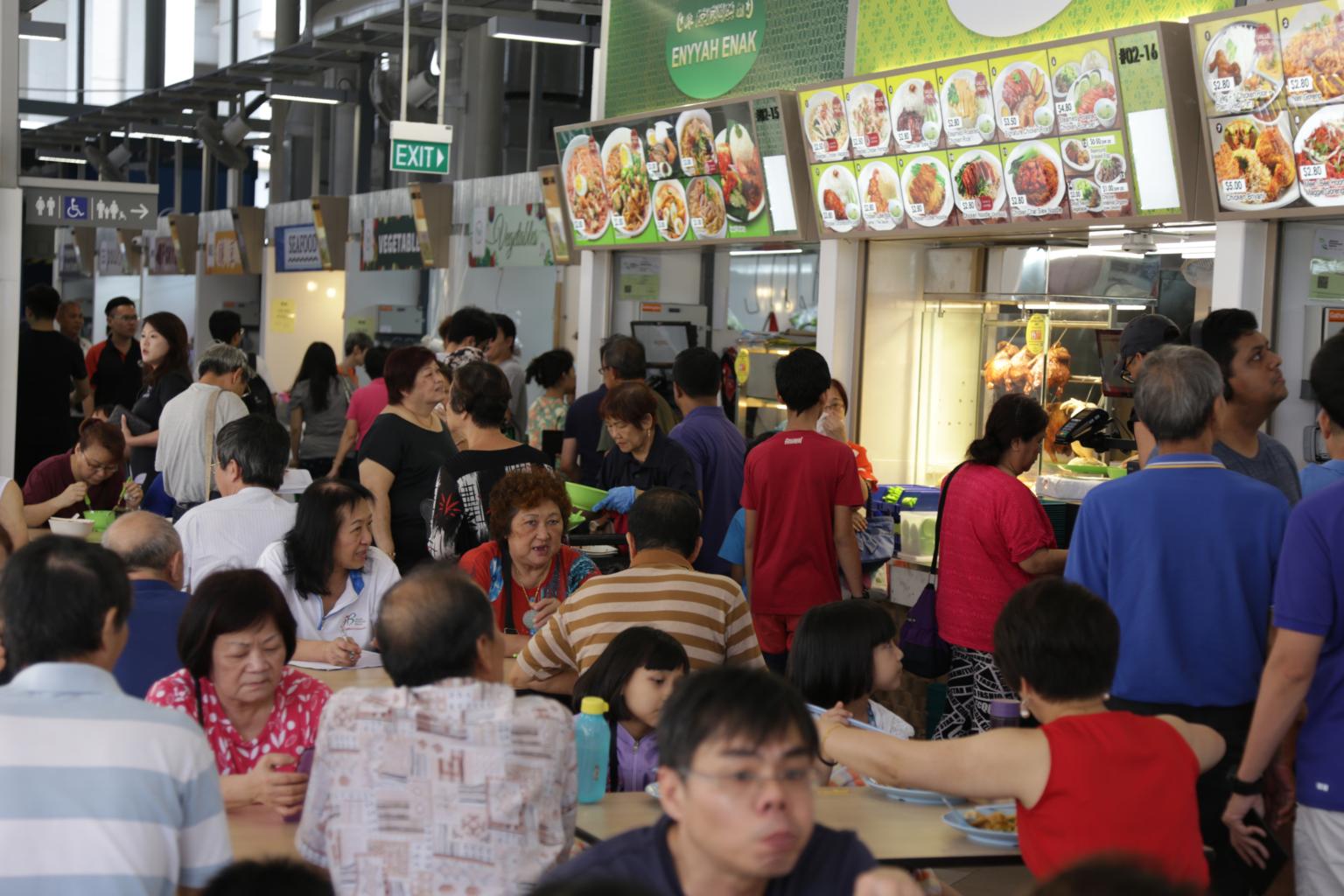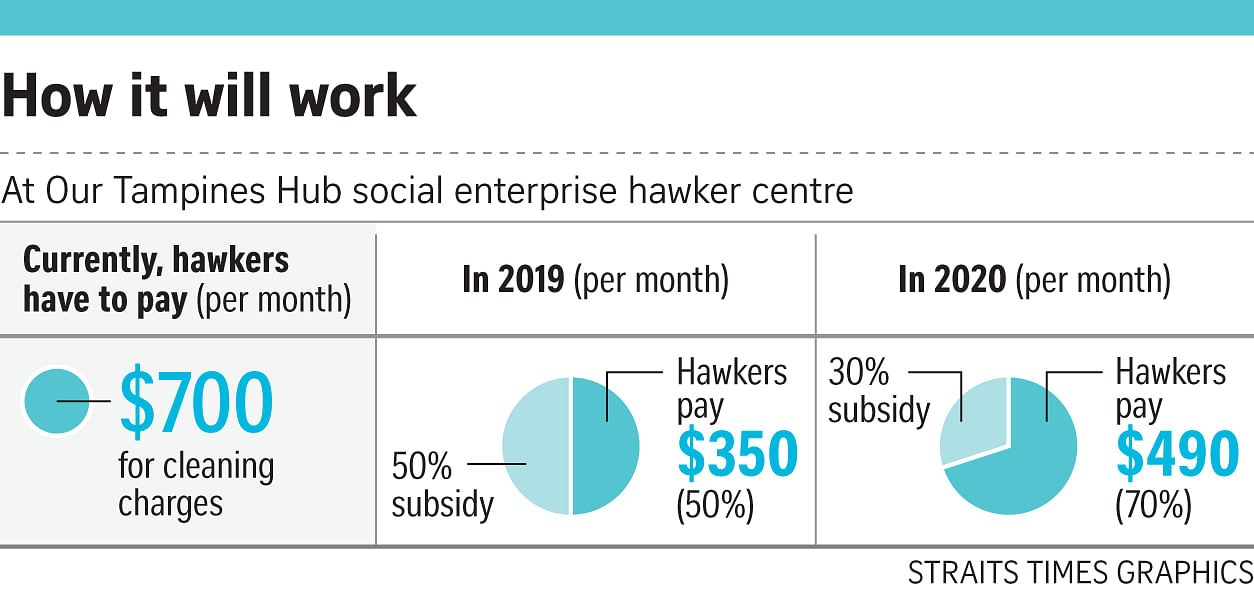Social enterprise hawker centres to receive dishwashing subsidies for next two years: NEA
Sign up now: Get ST's newsletters delivered to your inbox

Jurong West Hawker Centre, which is run by Hawker Management by Koufu, is one of seven hawker centres here that are currently managed by private social enterprises and cooperatives.
PHOTO: ST FILE
SINGAPORE - Stallholders at social enterprise hawker centres (SEHCs) will receive subsidies to help pay for dishwashing services from next year.
In 2019, the National Environment Agency (NEA) will pay half of the hawkers' dishwashing fees and, in 2020, it will pay 30 per cent of them.
The money will come from the Productive Hawker Centres grant, after the NEA announced on Friday (Nov 16) that it is extending it to Singapore's seven SEHCs.
Hawkers could see dishwashing costs drop from $700 to $350 a month, going by estimates from costs listed in a contract from Our Tampines Hub SEHC.
Plates and cutlery from stalls are sent for cleaning at a central dishwashing hub at each SEHC.
Senior Minister of State for the Environment and Water Resources Amy Khor said in a post on Facebook: "New hawker centres take time to establish themselves. We want to help stallholders better manage their operating cost in the initial start-up phase of their businesses when they are trying to build up a clientele."
In recent months, operators of social enterprise hawker centres have been criticised by members of the public for allegedly charging stallholders exorbitant costs, while custom has been low.
Last week, the NEA announced that several "onerous" contractual terms will have to be tweaked by SEHC operators to protect the interests of their stallholders.

Some hawkers are currently required to work six days a week but from Jan 1 next year, they can choose to work five, and will no longer have to be "locked in" to lengthy tenancy agreements.
They will also not have to pay exorbitant legal fees or heavy fines for breach of contract.
Seven out of 114 hawker centres here are currently managed by private social enterprises and cooperatives - Fei Siong Social Enterprise, NTUC Foodfare, Timbre+Hawkers, Hawker Management by Koufu and OTMH by Kopitiam.
There had been complaints that some operators have based the way they run SEHCs on their experience in running private foodcourts.
There have also been concerns over how much SEHC hawkers are charged for services such as tray return and dish cleaning.
"In the past month, besides reviewing the contractual terms between operators and stallholders, NEA also conducted a review of the operating costs faced by stallholders at our new hawker centres," said NEA chief executive officer Tan Meng Dui.
"We recognise that these centres may need time to establish themselves and build up a clientele. Many of the costs faced by the stallholders, like service and conservancy charges and table cleaning fees, are 'pass-through' charges."
"We hope that by extending the Productive Hawker Centres grant for centralised dishwashing service to stallholders, this will help them to better manage their operating costs in the initial years as they start up their businesses, and help to sustain our hawker trade in the long term."
Meanwhile, Hawker Management (by Koufu) announced measures on Friday to improve its SEHC in Jurong West Street 61, such as a weekday bus shuttle which will run between the hawker centre and Jurong Island from Dec 10.
It will also collaborate with Boon Lay community centre and launch an awareness campaign with taxi drivers in a bid to increase footfall.
"The hawker trade has been facing the challenges of an ageing workforce and manpower constraints," added Dr Khor.
She said: "The centralised dishwashing service has helped to address this, as stallholders need not hire assistants who are hard to find, or pay salaries of up to $1,500 a month.
"This also saves stallholders from paying additional water charges, or managing an inventory of crockery and cutlery that has to be replaced due to wear and tear, or loss.
"Hygiene is better as they do not have to carry out dishwashing within the stall area. We hope this will alleviate the workload of our hawkers, especially older hawkers, and make the trade more attractive to young hawkers by reducing menial work."


